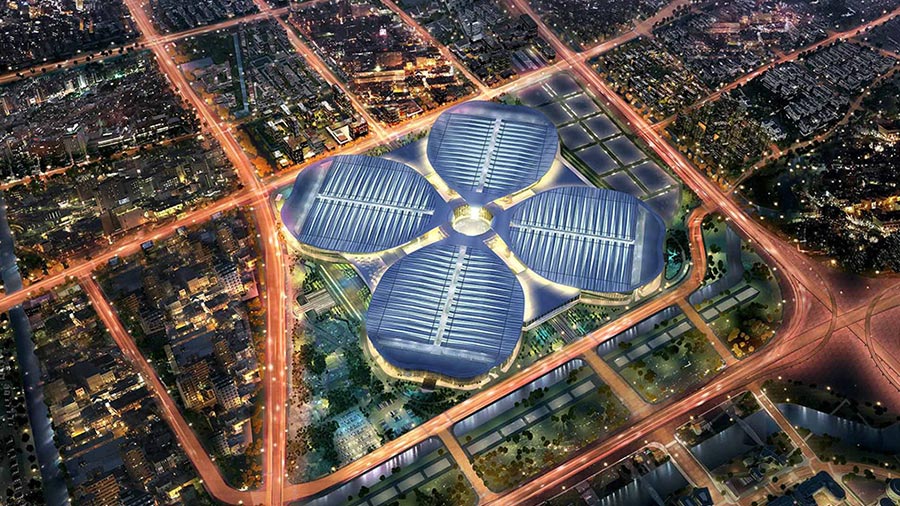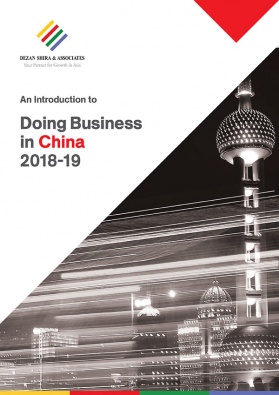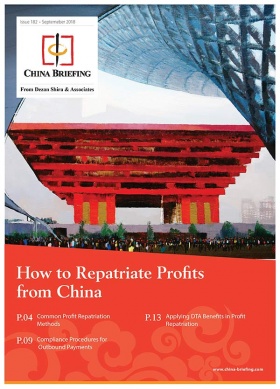China International Import Expo 2018: Did it Live Up to the Hype?

Source: National Exhibition and Convention Center (NECC) Shanghai
On November 10, 2018, the first ever China International Import Expo (CIIE) concluded in Shanghai. The expo brought together thousands of Chinese buyers with foreign companies and government representatives looking to export to the country.
First announced by Chinese President Xi Jinping in May 2017, the expo marked the latest of a series of efforts to reverse global sentiments on China’s trade practices and to promote China as an open and free market.
With over a year of preparation, and consistently hailed by domestic media as China’s ‘first and largest import expo’, the CIIE received no shortage of attention.
Now, with the expo finally wrapped up, many are wondering whether it lived up to the hype, and if it will have any long-term effects on China’s global image and international trade partnerships.
CIIE global attendees
According to the CIIE Bureau, which organized the event, the expo had over one million attendees hailing from 172 countries, regions, and international organizations, and more than 3,600 enterprises.
Riccardo Benussi, Deputy Regional Manager at Dezan Shira and Associates’ Shanghai office, said that “as China is continually criticized for its trade and economic practices worldwide, the expo was a chance for China to show the outside world that there is a market for overseas products within the country.”
Many high-profile leaders and top officials from across the world joined the event (the US being a notable exception), including some of the world’s most successful entrepreneurs, such as Alibaba’s Jack Ma, Microsoft’s Bill Gates, and Xiaomi’s Lei Jun.
However, the top executives of several multinational companies eschewed the event. For example, Starbucks CEO Kevin Johnson opted not to attend the CIIE even though he was in Shanghai at the time.
Nevertheless, many countries and foreign companies sent sizeable delegations to explore new business opportunities in China. Benussi greeted one such CIIE delegation, delivering a presentation to a group of representatives from over 50 Brazilian companies.
Benussi commented, “the expo was a significant opportunity for each representative country to showcase their unique and innovative products, whether it be the development of smart vehicles for medical purposes, heavy machinery from South Korea and Germany, or lightweight helicopters from Italy.”
Trade deals secured
At the closing of the six-day long event, the CIIE Bureau announced that deals worth a total of US$57.8 billion had been secured.
Of these deals, three industries stood out from the rest: the smart manufacturing industry (which represented almost a third of all deals at US$16.5 billion), followed by food and agriculture (US$12.7 billion), and the automotive industry (US$12 billion).
Other notable sectors included consumer electronics products and home appliances (US$4.3 billion), consumer goods (US$3.4 billion), and trade services (US$3.2 billion).
Interestingly, the collective US$57.8 billion worth of deals, while an impressive sum, is equal only to one-third of China’s imports in October and is less than the US$59.9 billion of deals made at this year’s Canton Fair, which has traditionally been China’s most recognizable trade fair, dating back to as early as 1957.
Additionally, many observers are skeptical of the impressive figures that Chinese government officials tend to promote after such events. Often these agreements are pre-planned far in advance and announced at the conclusion of an event for positive optics. Further, many of the deals tend to be non-binding, meaning that they may not be carried out when all is said and done.
Impact on business sentiment
As the dust begins to settle on the CIIE, many question marks remain on the lasting effect the event will have on foreign market access in China in the long run.
In his keynote speech at the CIIE opening ceremony, Xi promised to lower tariffs, broaden foreign market access, and increase imports from overseas. However, foreign businesses and governments are growing fatigued with such declarations, which lack detail and a roadmap for implementation.
Ultimately, concrete and actionable reforms will do more than trade fairs and media promotion to regain the confidence of foreign investors. Nevertheless, the CIIE presented an opportunity for foreign businesses to explore new opportunities for selling to China’s ever-growing market.
About Us
China Briefing is produced by Dezan Shira & Associates. The firm assists foreign investors throughout Asia and maintains offices in China, Hong Kong, Indonesia, Singapore, Russia, and Vietnam. Please contact info@dezshira.com or visit our website at www.dezshira.com.
- Previous Article Singles Day 2018: China’s Record Sales May Mask Economic Vulnerability
- Next Article China’s Outbound Tourism Market: New Opening Proposed for Foreign Investors







